Children with sensory processing issues are often smart and repeat what they do well. However, they also often avoid activities that are new or challenging. In this way the child tends to curb learning from experience. Using a plan for well-balanced play during the summer months can be helpful to offset this tendency. Ongoing growth of the child with SPD can be helped by including a variety of activities that focus on specific skills. A menu of essential activities for the summer is shown below.
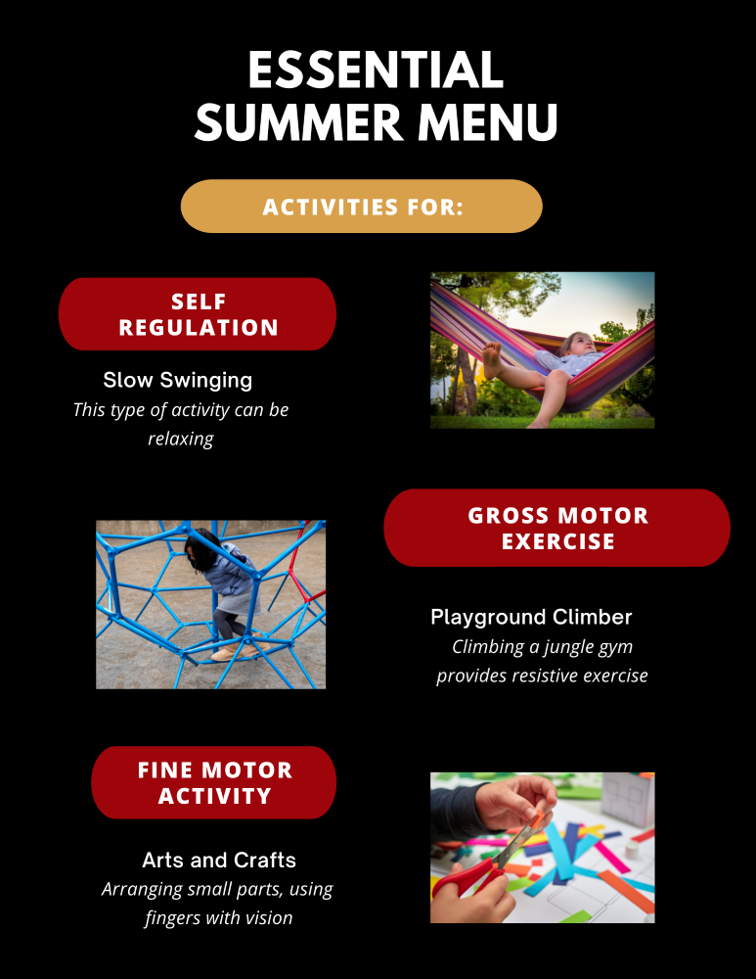
Self-regulation is an essential skill needed for successful play during the summer for these youngsters. Self-Regulation is the ability to adjust to sensations that occur in response to social, physical, and internal events of daily living. Self-regulation is often a huge developmental task for children who have SPD. That is why it is helpful to schedule naturally occurring calming influences on a daily basis. Activities listed are those that incorporate restful rhythms, soothing pressure, or workouts that result in relaxation for large muscle groups of the body.

Children with SPD often benefit from Therapeutic Listening. Use of the proper music can stimulate the nervous system to release calming chemicals. Speak with your therapist about this option.
Deep touch sensory input such as pressure touch, massage or vibration can also be used to help organize and relax the body. Children with SPD often benefit when equipment for deep touch is used on a regular basis at home. Helpful equipment can include:

- Weighted or compression vests
- Weighted lap pad or lap pet
- Weighted blankets
- Bean bag chairs
Heavy work with resistance such as wearing ankle weights or weighted vests during exercise or motor games can also help to produce self-regulation for children who have SPD.
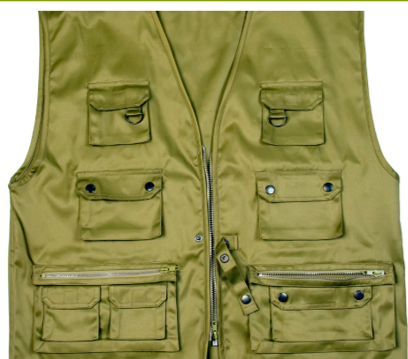
Weighted vest, pockets filled with weights 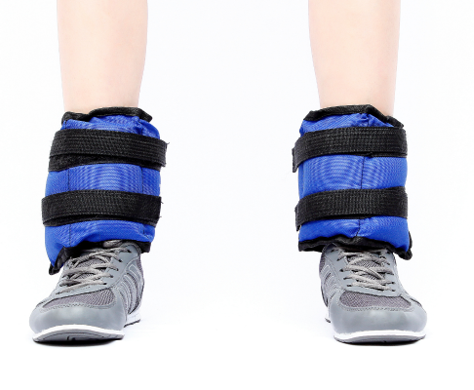
Child sized ankle weights
Gross Motor Activities is an essential category of play to be included on the menu of summertime play for children with SPD. Gross motor activities are those movements that involve the large muscles of the trunk, arms or legs.
Gross motor activities during the summer can include simple types of play such as pumping a swing, riding a bicycle, racing on a hop-ball, or even digging and shaping castles in the sand. Repeated use of the large muscles of the body is the key element for success. The repeated anti-gravity work of the large muscles triggers the production of Dopamine. This is a chemical of the nervous system that is known to stimulate attention and organization. Children with SPD benefit from having this element added to their gross motor activities.
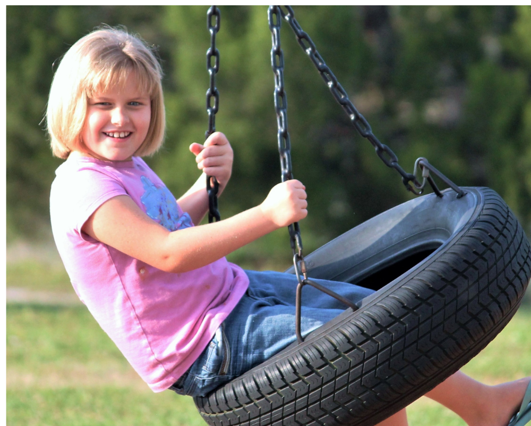
This girl is using the core muscles of her trunk as she pumps the tire swing 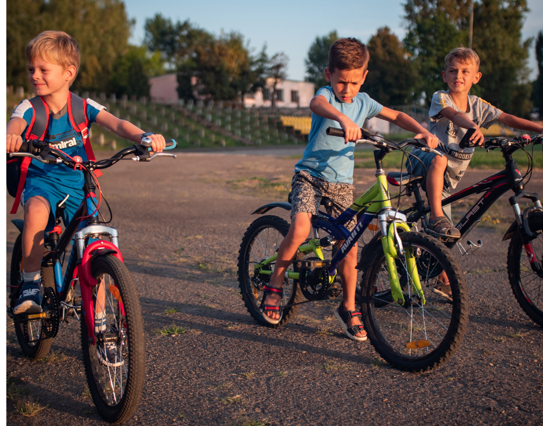
These boys are using the anti- gravity muscles of their arms, core, and legs to ride their bicycles. 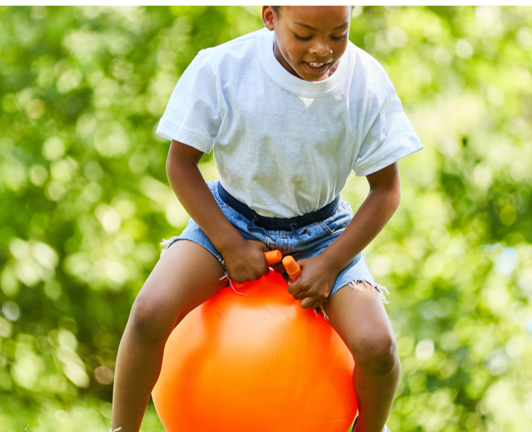
These boys are using the anti- gravity muscles of their arms, core, and legs to ride their bicycles. This boy is balancing himself using anti-gravity muscles of his core and legs as he bounces on the hop ball. 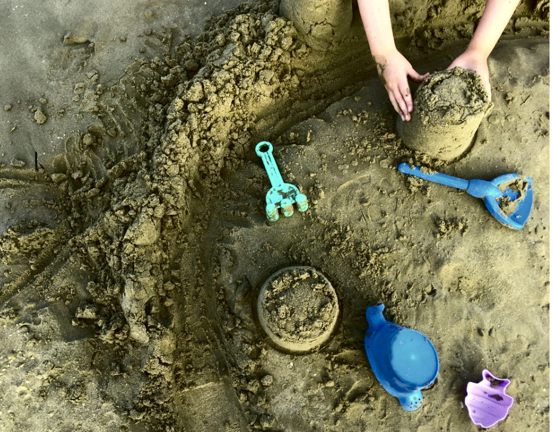
Another child is working on a resistive activity of building sandcastles.
Fine motor skills refers to the ability to coordinate moves of the small muscles of the hands and fingers. These skills represent another category to be included on the menu of summertime play for children with SPD. Most fine motor skills are guided by use of vision to guide the moves of the hands. Therefore, the term “visual motor integration” is often used to refer to these types of moves.
Fine motor activities help to build attention into summer play. Helpful activities that tend to enhance fine motor skills are those that naturally provide:
- moving visual targets, such as a soccer ball, volleyball, or bubble to burst
- intentional targets that require use of both hands such as:
- hard materials such as balsa wood, clothespins, craft sticks, and even pipe cleaners
- soft materials such as rope, yarn, construction projects, and even clay
- tools including pencils, scissors, pliers, tweezers, clips, paint brushes, rulers
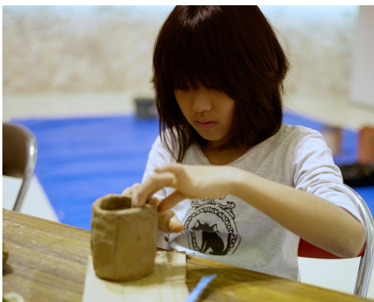
Girl smoothing a clay mug 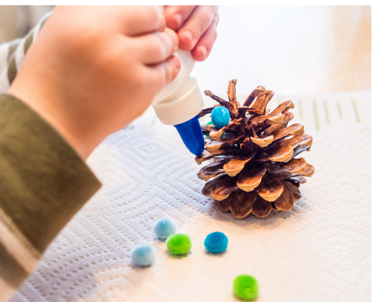
Child gluing pom poms onto a pine cone 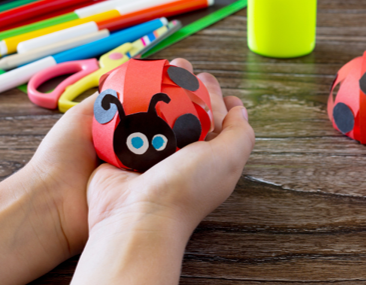
Child holding a paper ladybug 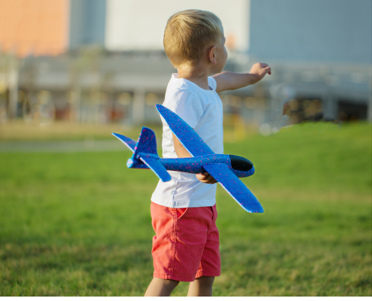
Boy with a wooden airplane
For additional references, click on these links below:
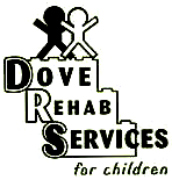
Comments are closed.